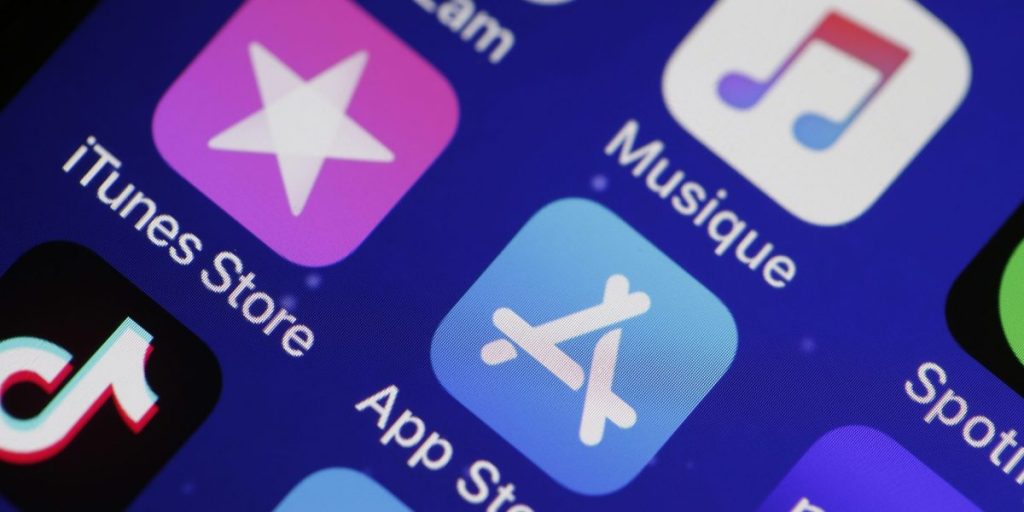The U.S. House of Representatives of the Judiciary Committee had concerns about Apple. A lot of questions about Apple’s corporate practices on everything from the iPhone to the company’s tradition of trapping customers into its apps, making it impossible for competing companies to succeed. Whereas Apple Claims to Congress It’s not Anti-Competitive.
In the company’s statement, released Tuesday alongside comments from Amazon, Twitter, and Facebook, Apple Vice President Corporate Law Kyle Andeer argued that the firm is operating in the best interests of its customers, has a lot of competition, and perhaps most notably, does not indulge in anti-competitive behavior.
For example, in one query, the committee asked Apple why it is not allowing iOS users to choose a third-party browser as their default option.
“Safari is one of the apps believed by Apple to describe the core user experience on iOS, with industry-leading security and privacy features,” wrote Andeer. He used the same “protection and privacy” argument to justify why Apple requires rival browsers, including Chrome and Firefox, to use a WebKit platform in place of their own underlying engines to drive their browsers on iOS.
When pressed on how Apple treats rivals in its iOS ecosystem, the company gave a laundry list of third-party applications that are only available to iPhone users from the company’s own App Store, which competes with its own built-in iOS programs.
“We have worked with many of these companies for years to help make them a success,” Andeer wrote.
The concerns are part of a larger Judiciary Committee inquiry that aims to establish if Apple and other tech heavyweights have exploited their positions of influence in order to keep competition at bay. For years the allegations have been nipping at Apple, following repeated assurances by the firm that it has not engaged in antitrust practices.
Antitrust experts do not agree that Apple’s answers to the committee’s questions will be kept up under scrutiny.
“Apple walks a fine line between giving clients an ‘integrated, secure and seamless experience’ and building a ‘walled garden’ that keeps clients trapped in the Apple ecosystem,” antitrust expert and Northwestern University professor Mohan Sawhney says. “I believe that some of Apple’s tactics are anti-competitive, such as not being able to change the defaults for built-in applications like the Safari browser or the messaging application.”
They set the engagement rules
Christopher Sagers, antitrust expert and law professor at the Cleveland-Marshall College of Law, also argues that Apple is engaged in activities that harm competition.
“Its stance towards its developers has been aggressive, very heavy-handed, and sometimes (as in the case of its well-documented ‘Sherlocking’), positively abusive,” Sagers said.
Sherlocking is a process where Apple creates a clone of a third-party device that often sends the original product to free fall.
Nevertheless, Apple is quick to notice that it has plenty of rivals, in the highly competitive tech industry, all doing well. But Sawnhey argues that third-party developers still need to abide by Apple’s rules to get access to the one billion potential customers that use iOS.
“They set the rules of engagement,” he said.
Even so, declaring Apple in breach of antitrust laws isn’t an open-and-shut case.
The J.L. co-director and clinical professor Mark McCareins. Kellogg Graduate School of Management at Northwestern University says that monopolistic practices are nuanced, making any definitive comment on the alleged practices of a corporation unlikely. And Apple says it understands.
“If a firm is attempting to compete with a monopolist and cannot survive because the monopolist has built a better mousetrap, the firm’s exit is not an antitrust violation,” McCareins says. “Even monopolists are permitted under-recognized law to compete and win competitive battles with ‘superior skill and business acumen.”
Yet a line is drawn when the alleged monopolist competes in a “special” way, McCareins says, adding that Apple’s justifications to date — web protection, privacy, and cyber security — were built with this theory in mind.
McCareins admits that antitrust theories can be extended to Apple’s business practices, but cautions that proving Apple is actually engaged in antitrust activity rely on “applying nuanced legal and economic analyzes to specific markets.”
“I don’t think Apple is Public Enemy Number 1, and I don’t think it is uniquely evil or bad,” he says. “I think that its attitude toward its users is precisely the same as that of every other business.”
“It is to some degree adversarial,” he says, “and that is the nature of commerce.”

